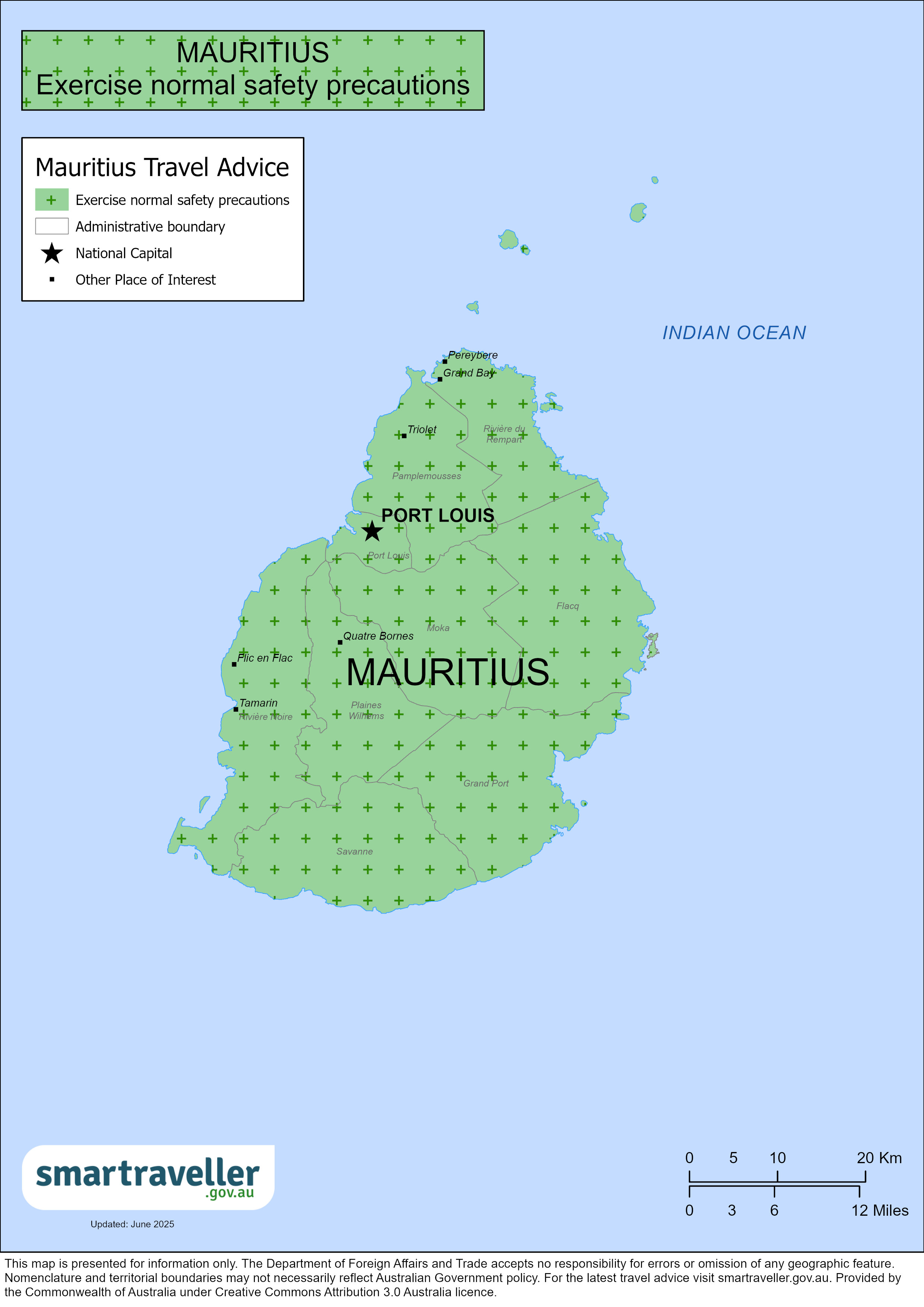Crime levels in Mauritius are low. However, petty crime and opportunistic theft occurs, including pickpocketing and bag snatching.
This is most likely to occur in crowded outdoor shopping areas, tourist areas, such as beaches, and near ATMs. There have also been cases of theft at unregistered beachside bungalows.
Women walking alone are at greater risk of verbal harassment and criminal targeting.
The crime rate is higher in downtown Port Louis and in the coastal tourist centres of Grand Bay, Pereybere and Flic en Flac.
Violent crime is not common, but incidents of assault, rape and murder have occurred, including in resorts.
The crime rate is higher in downtown Port Louis and in the coastal tourist centres of Grand Bay, Pereybere and Flic en Flac.
To protect yourself from crime:
- be aware of your surroundings and alert to suspicious behaviour
- avoid secluded or poorly lit areas, especially after dark
- avoid using ATMs on the street - use ATMS in banks, shops, hotels or shopping centres
- always lock your vehicle and accommodation and keep your valuables out of sight
- stay in accommodation registered with the Mauritius Tourism Authority.
If you are a victim of crime, contract the Mauritius tourism police on 999.
More information:
Taxi scams
There have been reports of taxi scams at the airport, where tourists have been robbed after entering unregistered vehicles.
To protect yourself from taxi scams:
- only use registered taxis. In Mauritius, these are clearly marked with a yellow sign and the name of the operating base on the door
- check the credentials of the driver and agree on the fare, before entering the vehicle
- where possible, book taxis through your hotel or accommodation.
Cyber Security
You may be at risk of cyber-based threats during overseas travel to any country. Digital identity theft is a growing concern. Your devices and personal data can be compromised, especially if you’re using or connecting to Wi-Fi, shared or public computers, or Bluetooth.
Social media can also be risky in destinations where there are social or political tensions, or laws that may seem unreasonable by Australian standards. Travellers have been arrested for things they have said on social media. Don't comment on local or political events on your social media.
More information:



